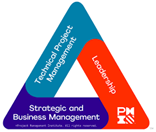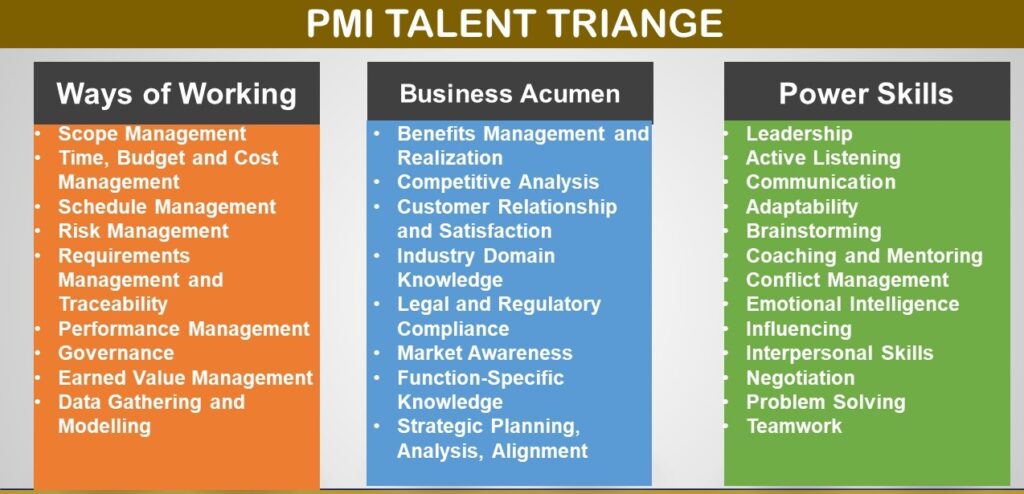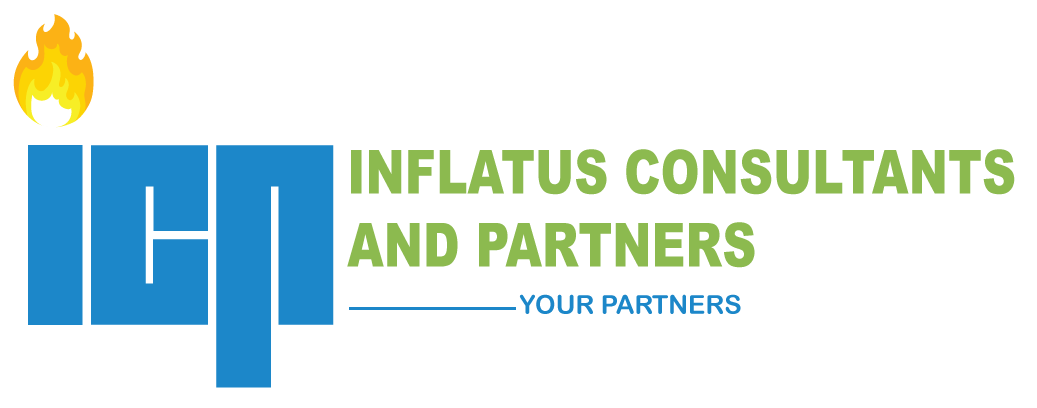REAL-WORLD PROJECT PLANNING DONE AND DUSTED

We have completed another session of our flagship project management training course, Real-World Project Planning.
I have attended many planning and risk management courses and even have advance certificates in P6 by Oracle. But nothing compares to this course both in content and delivery.
While all planning courses address the technical skills of project planning, not one addresses other skills that are required to succeed as a planning engineer. They hope that if you know how to do planning and work hard, then your career would blossom. But you know that is not true.
That is why the project management institute (PMI) maintains that project management career success requires much more than technical competence. They insist, based on extensive research, that power skills and business acumen are also required. This is represented in the Talent Triangle shown below.

The figure below shows some of the details contained in each of the three domains.

The Real-World Project Planning course covers key contents in the three domains.
Highlights of the course includes:
- Introduction to Project Management
- Project Management Context and Environment – examines project management as a tool for implementing organizational strategies.
- Clarifying Project Management Terminology
- Project Management Process Groups
- Overview of Project Management Specialist Skills (Knowledge Areas)
- Etc.
- Project Planning Fundamentals
- Project Schedule Management
- Planning Process Group
- Project Planning Step-By-Step
- Etc.
- Project Schedule Development (Time Management)
- Review of Project Scope of work
- Work Breakdown Structures and Application
- Activity Definition and Sequencing
- Estimating Methods, Accuracy and Contingency
- Etc
- Schedule Optimization, Control and Reporting
- Schedule Risk Analysis
- Baselining the Schedule
- Progress Measurement System including Rules of Credit
- Earned Value Management System (EVMS)
- Trending and Forecasting
- Project Recovery Methods
- Report and Closeout Project
- Etc.
- The Planning Engineer and His Power Skills
- Responsibilities of a Planning Engineer
- Qualities of a Great Planning Engineer
- Power Skills of Planning Engineers including leadership and influence, teamwork, and conflict management
- Etc.
Unlike many other planning courses that are delivered by people who have no planning or project management experience, this course is facilitated by someone who is not only well trained with a higher degree in project management, and certified by the project management institute, but is a practitioner with many years of international experience.
We are now in the process of accepting trainees for the next session. Go here if you want to take your career to the next level.
This can also be conducted in your facilities.
There you have it.


